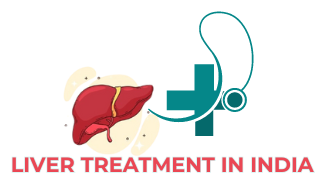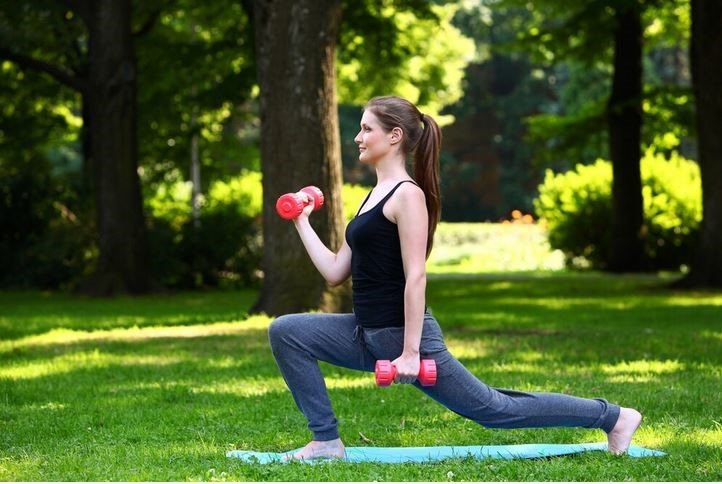Overview: Exploring the Relationship Between Exercise and Liver Health
In the present modern scenario, despite the busy lifestyle, most of the people do not need any physical activity to get food, today facilities ranging from ready to eat packaged food to home delivery are making life simple, however these Facilities do not provide you with nutritious food options, which can lead to obesity. According to liver surgeons, obese people have an increased risk of non-alcoholic fatty liver disease (NAFLD), which has increasingly become the most common cause of serious liver disease, compared to physically active people of similar weight. The best liver transplant surgeons point out that there is a strong connection between exercise and liver health, and when it comes to the impact of physical activity on liver disease, regular exercise can help improve liver health.
It contributes to improving insulin sensitivity and circulation which can operate and stimulate unique chemical processes associated with the liver. Today through this blog we will try to share a wide range of information ranging from understanding the Benefits of exercise on liver function to exercise recommendations for individuals with liver conditions and integrating physical activity into daily life for liver health. It can help you to promote liver health and overall well-being.
Understanding the Impact of Physical Activity on Liver Function
Top Rated Liver Transplant Hospitals explore the connection between physical activity and liver health with today’s advanced medical practices. However, physical activity has far-reaching effects on overall health. Research regarding the benefits of exercise on liver function suggests that regular exercise can positively affect liver health by addressing factors such as obesity, circulation, insulin sensitivity, and alcohol consumption habits.
Role of Routine Screenings and Check-ups
Routine screenings and check-ups play a crucial role in identifying liver diseases in their initial stages. Blood tests, such as liver function test and viral hepatitis screening, can detect abnormalities in liver function or the presence of hepatitis viruses before symptoms manifest. Imaging studies, such as ultrasound, CT scans, or MRI, may also be used for early detection of liver diseases.
How Exercise Affects Liver Health
The Relationship between Exercise and Liver Health the quick energy demands of your muscles cannot be met without a strong response from the liver. The liver releases and recycles stored energy during physical activity. According to a liver expert doctor, the metabolic demands on your muscles during vigorous exercise cause the liver to mobilize energy reserves, recycle metabolites, and convert excess amounts of toxic compounds into harmless forms. This recycling process in the liver converts metabolites in your body into macronutrients, and amino acids into proteins, thereby helping to convert potential energy into chemical energy. Additionally, exercise stimulates detoxification processes in your body, resulting in the rapid removal of nitrogen molecules, hemoglobin, unwanted hormones, foreign substances, immunoglobulins, and other harmful compounds from the circulation. Although the effects of physical activity on liver disease are so broad that it is not possible to attribute them to any single major mechanism, exercise may combine or mediate actions ranging from increasing the release of potential energy to endocrine stimulation.
Benefits of Regular Physical Activity for Liver Health
According to our top liver transplant surgeons, exercise plays an important role in maintaining liver health through various mechanisms. However, before incorporating regular exercise into your lifestyle, it is important to understand how to reduce the risk of liver disease and the problems that can lead to it. For this, the liver transplant doctors associated with the Liver Treatment Team in India Team provide you with special help. Here are some tips on the benefits of regular physical activity for liver health which can have a significant positive impact on liver health by improving overall liver function.
- Obesity reduction: Regular exercise helps burn calories and reduce body fat, thereby reducing the risk of obesity-related liver conditions such as non-alcoholic fatty liver disease (NAFLD).
- Improves insulin sensitivity: Exercise increases insulin sensitivity, which helps in better glucose control. Improved insulin sensitivity reduces the risk of insulin resistance, a condition closely linked to NAFLD and type 2 diabetes.
- Increases blood circulation: Physical activity improves blood flow throughout the body, including the liver. This increased circulation supports liver function by aiding the delivery of nutrients and oxygen and facilitating the removal of toxins and waste products.
- Reduction in liver fat: Exercise reduces liver fat, especially in individuals with NAFLD. This reduction in liver fat is associated with improvements in liver enzyme levels and overall liver health.
- Prevention of liver inflammation: Regular exercise has anti-inflammatory effects on the body, which can help reduce liver inflammation and prevent the progression of liver diseases.
Types of Exercises Beneficial for Liver Health
Leading a healthy lifestyle with physical activity is important for liver health. Although liver problems can take time to heal, liver transplant hospitals often recommend types of exercise beneficial for liver health in an approach that prioritizes a healthy lifestyle.
It is recommended to include aerobic exercise, strength training, flexibility, and balance exercises. Because physical activity is directly linked to your liver health, it is important to include a combination of physical activity and a balanced diet.
Aerobic Exercises
Aerobic exercise refers to high-intensity physical activities including jogging, swimming, cycling, or exciting dancing that can help improve general liver health. Along with promoting the general fitness of the body, these exercises also keep the circulation and metabolism of the liver balanced.
Strength Training
Strength training or resistance training such as weight lifting can help strengthen the liver. This increases the body’s muscle mass, so that your body can better manage the toxins that produce fat.
Flexibility and balance exercises
Flexibility and Balance Exercises
Yoga, pilates, tai chi or nerve exercises can help improve liver health. Through these exercises, you can relieve your body from stress, as well as increase balance and flexibility, which will improve your general health.
Exercise Recommendations for Individuals with Liver Conditions
Top liver transplant specialists in India generally emphasize the importance of exercise plans tailored to your health, focusing on physical activities under the supervision of professionals. Expert exercise recommendations for individuals with liver conditions from liver transplant hospitals may include designing exercise programs for different liver conditions to ensure precautions and safety measures during exercise.
Tailoring Exercise Programs for Different Liver Conditions
Exercise programs for individuals with liver conditions should be combined and customized under expert supervision at the best liver transplant clinic so that you can improve your liver and overall health safely. In this, you can focus on the following points.
- Doctor’s advice: Foremost, liver health should be specially checked by the liver treatment doctor and an exercise program should be prepared based on his advice.
- Take care of general health: A healthy diet and adequate rest along with positional exercises are also important. According to a liver expert doctor, it can help in improving your liver health.
- Beneficial Exercises: The exercises to be included in an exercise program should be carefully chosen, such as aerobic Exercises, Strength Training, Flexibility, and Balance Exercises.
Precautions and Safety Measures During Exercise
- Avoid excessive movement and excessive stress during exercise, as it can badly affect the liver.
- Exercise regularly, but be careful not to exercise for excessive periods, and maintain positional stability.
- Follow the measures given by the doctor treating your liver, such as a special diet, taking medicines at the right time, and any special rules required.
- Listen to your body’s sensitivity and contact your doctor immediately if any unwanted experiences occur during physical activity.
Integrating Physical Activity into Daily Life for Liver Health
Workout Routines for Liver Health in terms of exercise before liver problems and also after liver transplant treatment, exercise holds special importance. According to a liver expert doctor, it can be important to integrate physical activity in daily life to improve liver health. However, exercise should be done with discipline, caution, and appropriate support, especially with liver problems. It is most important to follow the advice given by the doctor or experts. According to experts, the following methods can be adopted to integrate physical activity into daily life for liver health. By incorporating physical activity into your daily life, you can improve liver health, maintain a healthy weight, increase energy levels, and reduce the risk of liver-related conditions. Remember to start slowly, listen to your body and gradually increase the intensity and duration of your activities as your fitness level improves.
- Include an exercise routine: Include an exercise routine: Make time for exercise every day, whether it’s brisk walking, jogging, cycling or working out at the gym. Be sure to aim for at least 30-60 minutes of exercise beneficial for liver health most days of the week.
- Active transportation: Consider walking or bicycling instead of driving for short trips. This not only adds physical activity to your day but also reduces carbon emissions and promotes environmental sustainability.
- Take active breaks: Avoid sitting for long periods by incorporating small physical activities throughout the day. Stand up, stretch, or take a brisk walk around your home or office every hour.
- Chores: Turn household chores into opportunities for physical activity. Gardening, cleaning, and household maintenance tasks like vacuuming or mopping can all contribute to your daily activity level.
- Outdoor activities: Spend time doing activities like walking outside, gardening, or playing sports with friends and family. Outdoor activities provide not only physical benefits but also mental and emotional refreshments.
- Use the stairs: Opt for the stairs instead of the elevator whenever possible. Climbing stairs is a great way to incorporate cardiovascular exercise into your routine and strengthen leg muscles.
- Desk Exercise: If you work at a desk job, include desk exercise in your daily routine. Simple stretches, leg lifts, or sitting in a chair can help reduce stiffness and promote circulation.
- Active leisure time: Choose fun activities that involve movement, such as dancing, swimming, or playing active video games. Make physical activity an enjoyable part of your leisure time.
The discovery of the link between exercise and liver health reveals a deep connection. However, it is important to consult health care professionals for individualized exercise recommendations, especially for individuals with liver conditions or after liver transplant treatment. Most Liver Transplant Centers With a balanced approach toward individual physical activity, individuals can strive toward optimal liver health and an overall healthy lifestyle. In selected individuals with liver health, exercise may have potential benefits in endurance and functional outcome measures without adverse effects. The discovery of the link between exercise and liver health from the best liver transplant center in India underlines the critical importance of physical activity in maintaining optimal liver function. As a leading institution in liver care, our center recognizes the important impact that regular exercise can have on liver health. Research shows that exercise plays an important role in reducing the risk of liver diseases such as fatty liver disease, cirrhosis, and liver cancer. By promoting weight management, improving insulin sensitivity, increasing circulation, and reducing liver fat, exercise can effectively aid liver health and function. Liver transplant clinic associated with us emphasizes the integration of individualized exercise into comprehensive liver care plans to optimize patient outcomes. Through a multidisciplinary approach that includes expert medical guidance, tailored exercise programs, and ongoing support, we aim to empower individuals to actively manage their liver health and enhance their overall well-being.

